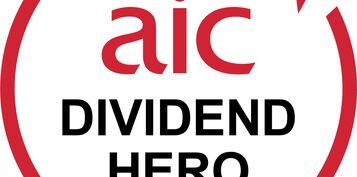Diversify to protect your income
David Prosser tells us how investment companies can help income-focused investors.

 For anyone who needs to generate income from their savings and investments, the record low interest rates of the past decade have been dismal – but the stock market has more than made up for poor returns on cash. Dividend payments by UK companies have risen almost every year for 10 years with 2019 looking set to continue the trend – companies paid out more income to their shareholders in the first three months of the year than in any previous quarter on record.
For anyone who needs to generate income from their savings and investments, the record low interest rates of the past decade have been dismal – but the stock market has more than made up for poor returns on cash. Dividend payments by UK companies have risen almost every year for 10 years with 2019 looking set to continue the trend – companies paid out more income to their shareholders in the first three months of the year than in any previous quarter on record.
However, while the headline figures paint a rosy picture, income seekers aren’t having it all their own way. In May, the telecoms giant Vodafone announced it was cutting its dividend as part of a financial restructuring plan. It’s not the only company finding it difficult to maintain pay-outs to shareholders. Analysts also fear dividend reductions at BT and the utility companies Centrica and SSE. The pharmaceuticals giant AstraZeneca is the latest company to see investors question whether its dividends are sustainable.
Safety in numbers
If you’re dependent on pay-outs from such companies for your income – in an income drawdown plan in retirement, perhaps – this is worrying. For many income seekers, while generous dividends are attractive, certainty is even more important; they need to be confident about their future income stream.
How, then, to protect yourself in a world where companies can, and often do, cut their dividends at short notice? Such situations are not always predictable; in Vodafone’s case, for example, the company’s finance director had insisted a few months previously that it should be possible to maintain dividends.
One option is to take a more scientific approach to the companies in which you invest for income. Statistics such as a company’s “dividend cover” tell you how sustainable its current policy on dividends really is. A rating below one means the company isn’t earning enough to pay dividends at their current levels (though it may have other resources to fall back on). Really, a rating above two is ideal.
Another approach is to build up a portfolio of high-yielding stocks, rather than depending on a very small number of companies. With, say, 10 to 20 generous dividend payers in your portfolio, you should be able to cope with the impact of one of them deciding to pay less.
The investment company approach
For many investors, however, these options aren’t practical. You may not have the time or the confidence to crunch the numbers on dividend cover. You may not have the resources to invest in enough companies to avoid putting all your eggs in one basket – and managing such a portfolio can be time-consuming and administratively burdensome.
In which case, consider an investment company, which will do both these jobs on your behalf. Run by professional fund managers, investment companies pool investors’ assets and hold a diversified portfolio of shares to spread risk.
Investment companies are closed-ended funds, meaning they don’t expand or contract as investors make deposits or withdrawals. And importantly, they have a crucial advantage over other types of investment vehicle for income seekers: they’re allowed to hold back income earned on their portfolios in good years in order to make payments to shareholders in more challenging times.
As a result, income-focused investment companies have a remarkable record of paying consistent dividends. No fewer than 20 investment companies have delivered dividend increases in each of the past 20 years; some of these funds have records of increasing dividends every year for 30, 40 or even 50 years.
It’s important to understand these funds are not without risk. The value of your investment will go up and down as the value of the assets in which the fund is invested changes over time. But if reliability of income is your end-goal, investment companies can provide a short-cut to the diversification and scientific approach to stock selection that you need.






